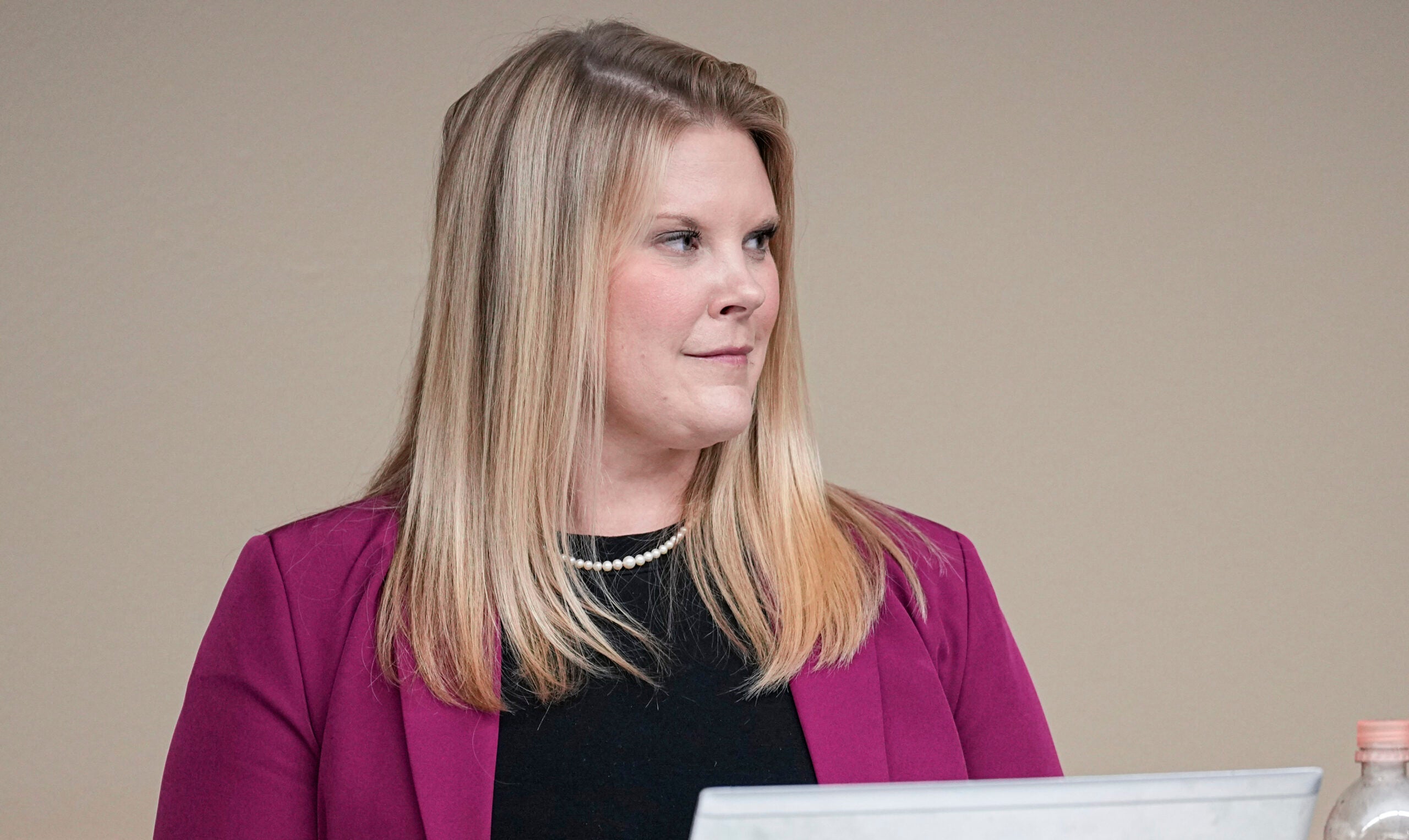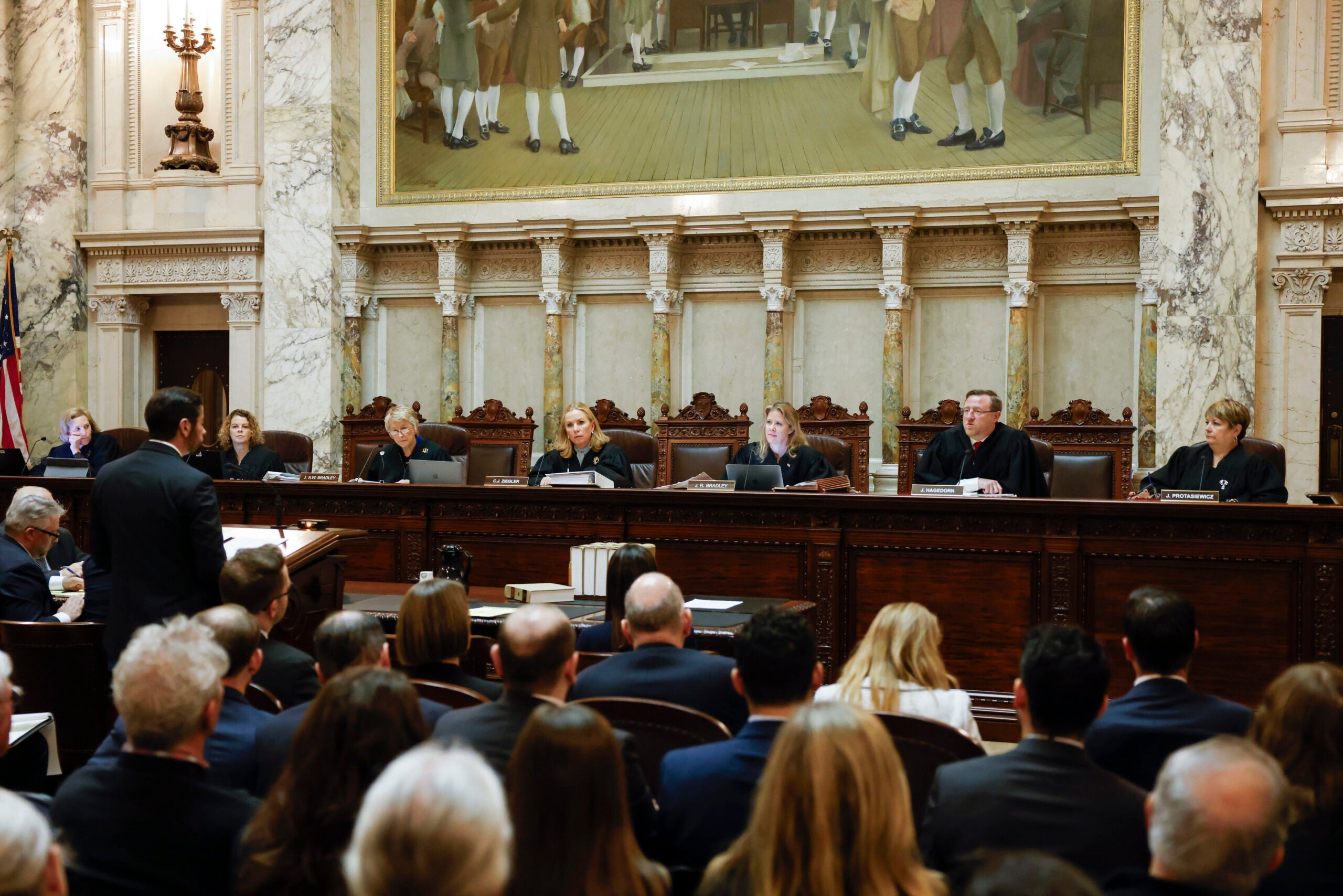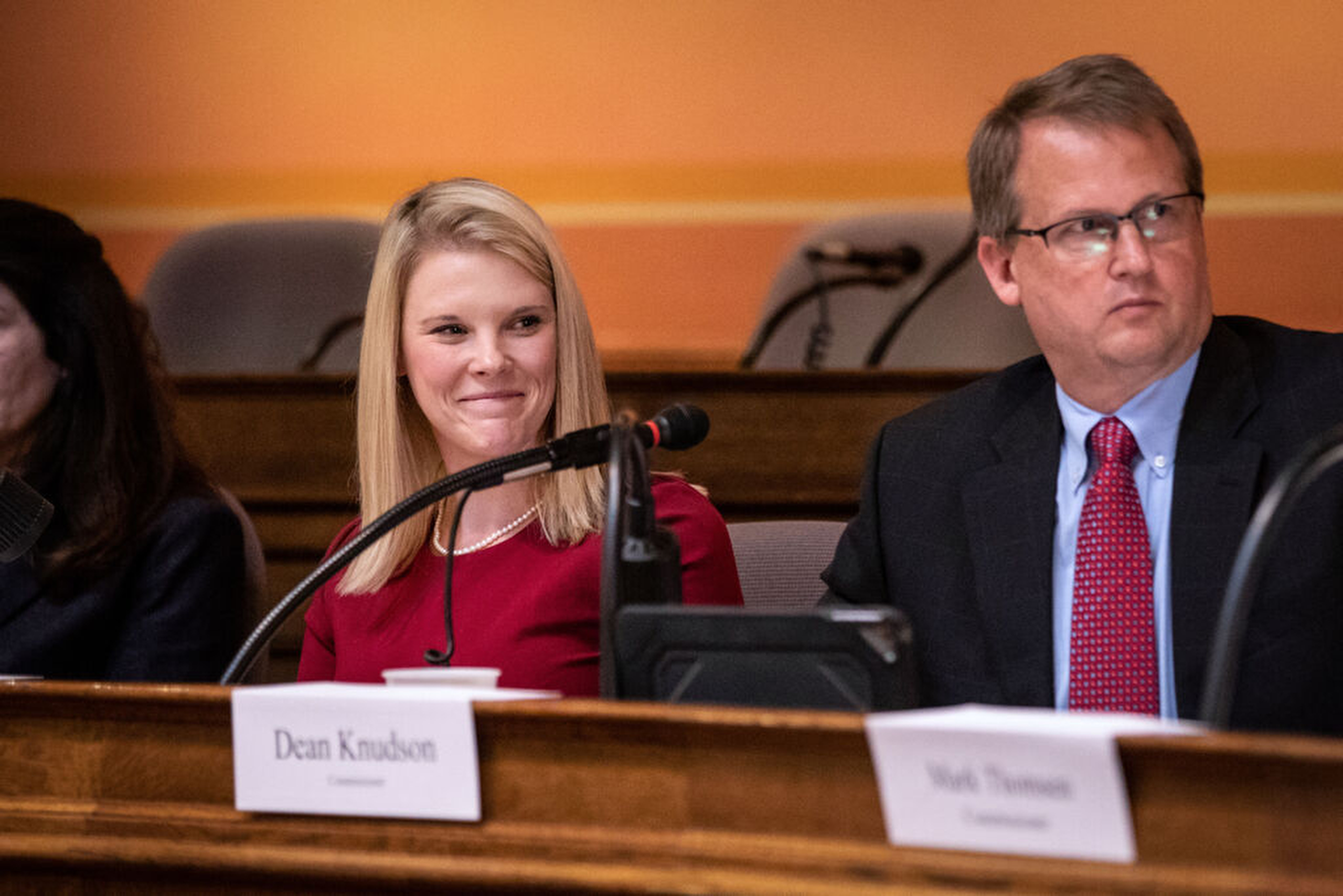Conservative justices on the state Supreme Court aggressively attacked the stay-at-home order issued by Democratic Gov. Tony Evers’ administration Tuesday, prompting an attorney for Evers to respond that people will die if the order is lifted.
Whatever they decide will undoubtedly shape the state’s response to the COVID-19 pandemic in the months ahead, and potentially well beyond. Republican lawmakers have asked justices to strike down the entire “Safer at Home” order, and if they’re successful, it’s not entirely clear what would replace it.
Republicans brought the lawsuit against the Evers’ administration last month in an effort to overturn the stay-at-home order extension issued by state Department of Health Services Secretary Andrea Palm. Palm’s order has remained in effect while the court considers the case.
Stay informed on the latest news
Sign up for WPR’s email newsletter.
Palm issued the order using powers granted to her agency under a set of state laws aimed at managing communicable diseases. Those laws give DHS broad powers to “forbid public gatherings in schools, churches, and other places” in order to control epidemics.
Some justices sent strong signals that they viewed those powers as too broad, and Justice Rebecca Bradley, the court’s most outspoken conservative, compared them to tyranny.
“One of the things this order does is allow people to go to prison for leaving their homes unless it’s OK with the DHS secretary,” said Bradley.
“I think there is a constitutional problem with the Legislature giving away this much power to an unelected cabinet secretary,” she later added.
Arguing for Evers, Assistant Attorney General Colin Roth said striking down the stay-at-home order without any replacement would spread COVID-19, and more people would die because of it.
“The disease will spread like wildfire, and we will be back into a terrible situation with an out-of-control virus with no weapon to fight it,” Roth said. “People will die if this order is enjoined with nothing to replace it. That is exactly what will happen.”
Roth said Palm was merely carrying out powers that were given to her by previous Legislatures to respond to the unknowns of fast-moving pandemics like COVID-19.
In addition to striking down the current stay-at-home order in its entirety, Republicans want the court to require future orders to be issued through the state’s administrative rulemaking process. That process would effectively give Republican legislators veto power over future orders.
Republicans had asked the court to issue a six-day stay that would keep current order in effect while the Evers administration works on a replacement, but a GOP attorney conceded Tuesday that a new order would require at least 12 days to work its way through the rule-making process. The Evers administration argues it would take closer to three weeks.
Beyond those technicalities, the ideological chasm between Evers and Republicans appears to be widening. The governor’s plan for reopening the state is based on benchmarks including a decline in the percentage of positive COVID-19 tests.
Republicans have yet to offer an alternative of their own, but they have promoted a plan by Wisconsin Manufacturers & Commerce (WMC), the state’s largest business group, that would reopen the state immediately. The WMC plan suggests different levels of protection for workers, like face masks and social distancing, depending on where a business is located and the type of work it performs.
Underpinning the WMC plan is the idea that the state should address COVID-19 regionally rather than treating all counties the same. Evers has rejected that idea, saying the virus won’t respect county lines and some of the state’s smallest counties also have the least access to hospitals.
“This started out predominantly in Madison and Milwaukee, and we just had this outbreak in Brown County very recently in the meatpacking plants,” Roth told justices.
“These were due to the meatpacking, though,” responded Chief Justice Patience Roggensack. “That’s where Brown County got the flare. It wasn’t just the regular folks in Brown County.”
Conservative Justice Brian Hagedorn asked Republican attorney Ryan Walsh whether Palm would retain the power to issue more limited stay-at-home order, potentially covering individual counties.
“That’s basically right,” Walsh responded.
Conservatives have a 5-2 majority on the court, giving them lopsided say over the outcome of this case.
The court has taken other steps that suggest it takes the COVID-19 pandemic seriously. For example, justices held arguments Tuesday by a remote Zoom teleconference, and in March, it ordered all jury trials delayed for months.
But even justices who had agreed with those steps sent hints Tuesday that they might rule against the stay-at-home order.
“We may personally think things make sense, but we have to apply constitutional principles and the language of the statute,” said Justice Annette Ziegler. “Because tomorrow there could be a different situation.”
If the court strikes down the order, and Evers and Republican lawmakers can’t agree on a new order to replace it, it could fall to each of Wisconsin’s 72 counties to decide for themselves how to manage residents and businesses in the face of COVID-19.
The case up for arguments Tuesday is the broadest challenge to the order, but it’s not the only attempt to overturn the law. Two private citizens filed their own challenge Monday, arguing the order infringes on their rights to freedom of worship and freedom of speech.
Wisconsin Public Radio, © Copyright 2025, Board of Regents of the University of Wisconsin System and Wisconsin Educational Communications Board.





